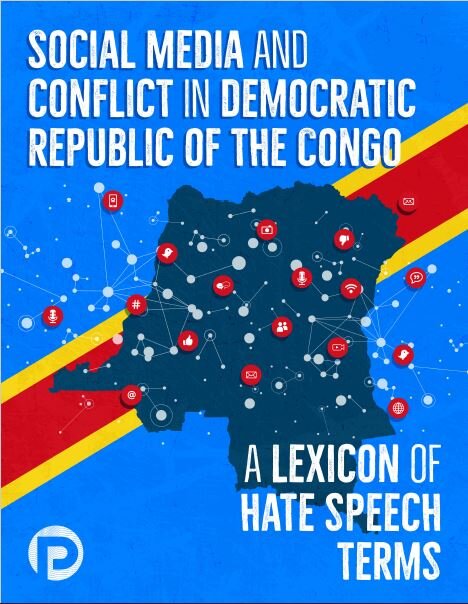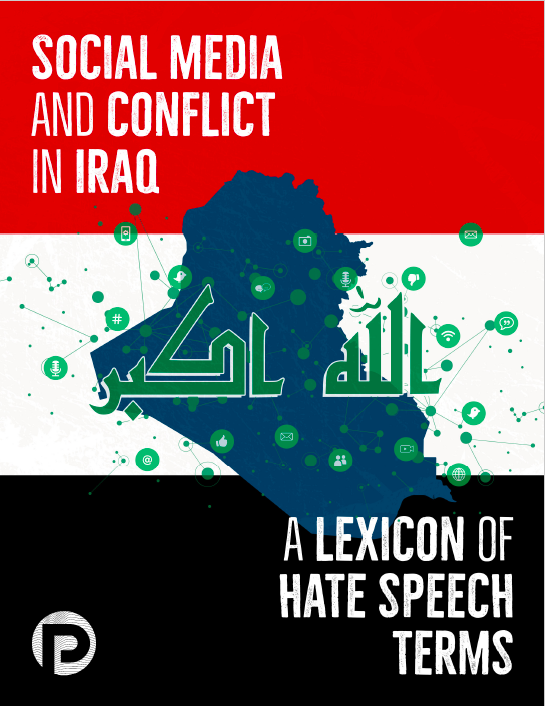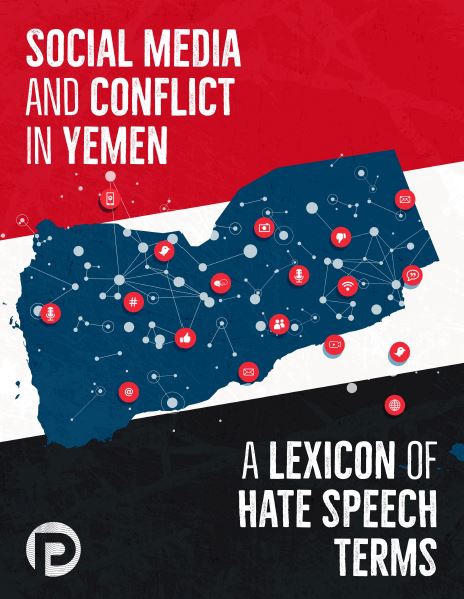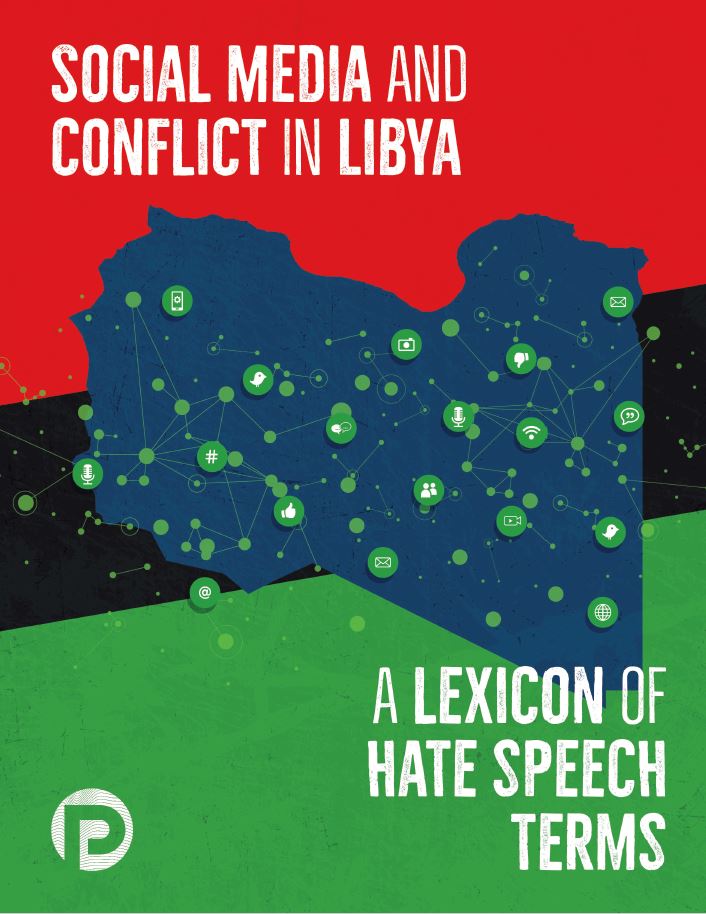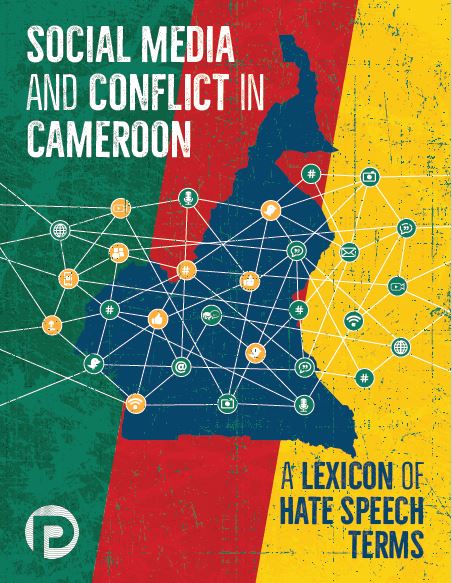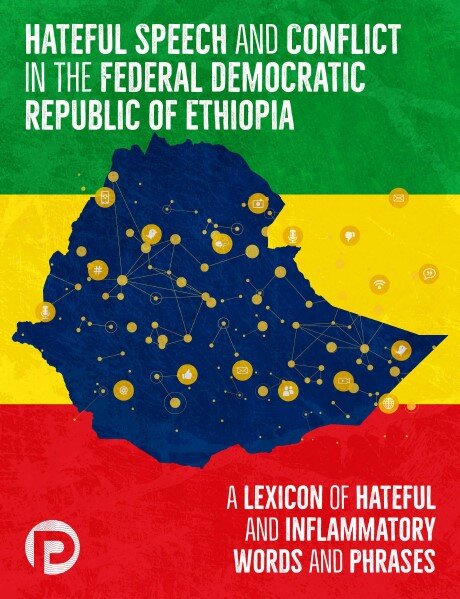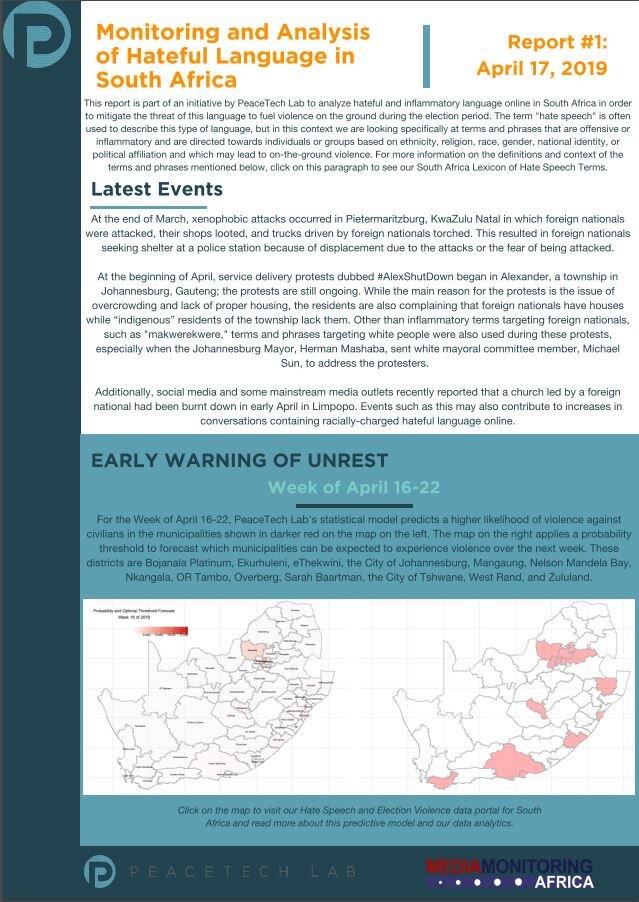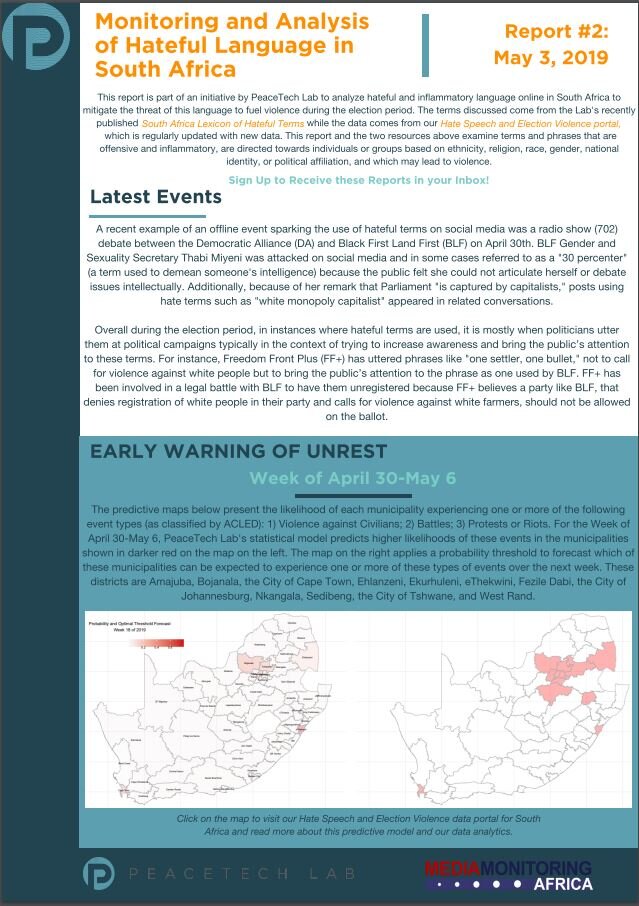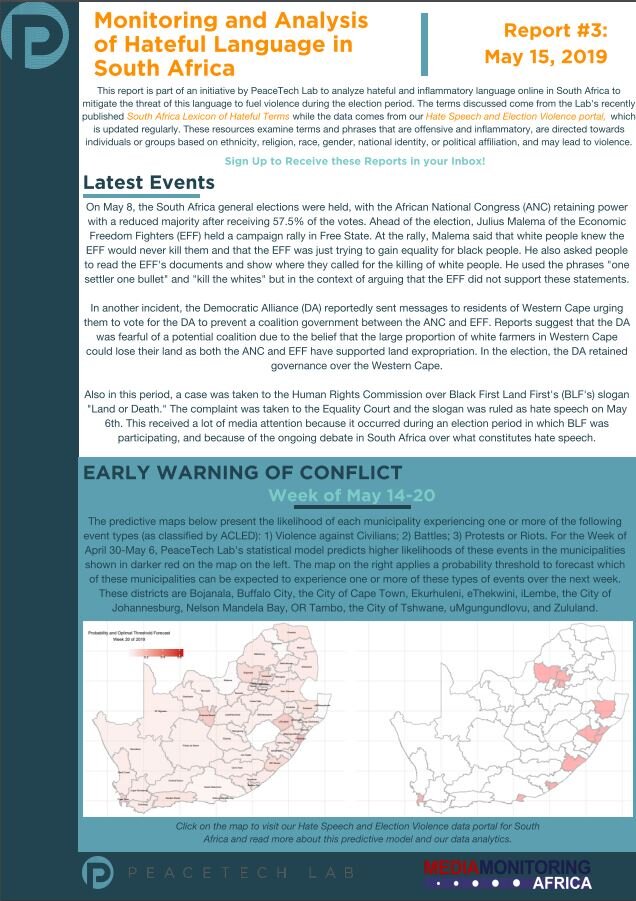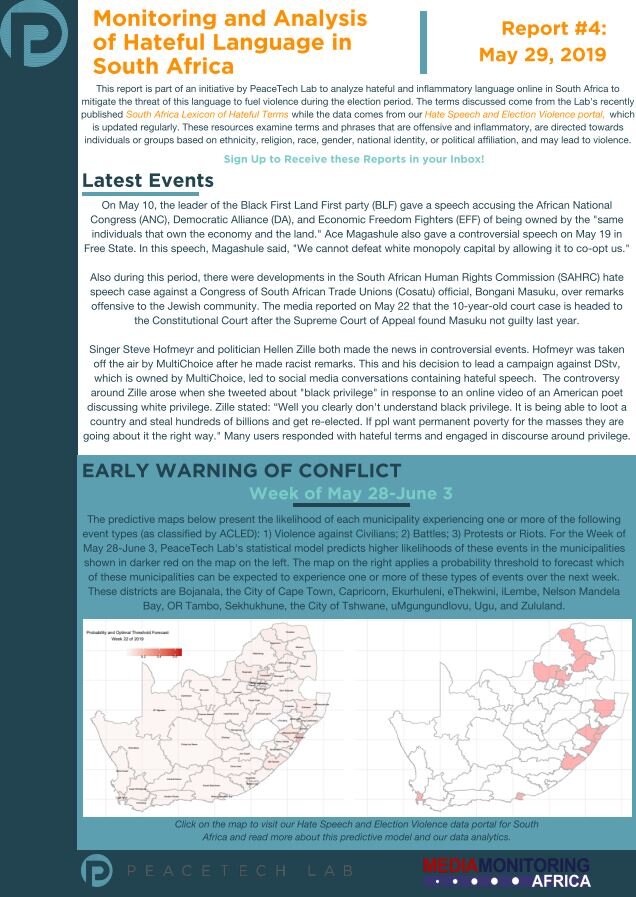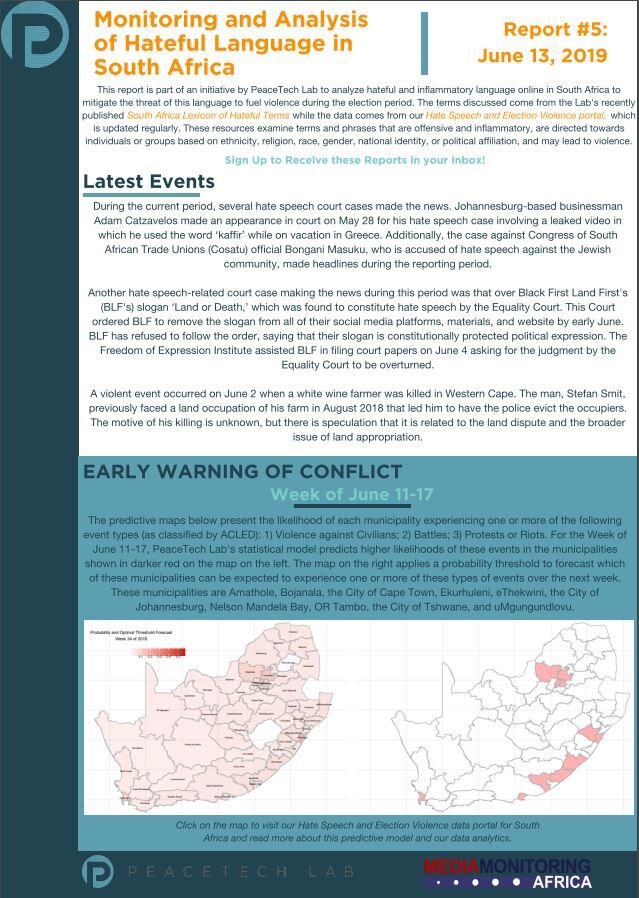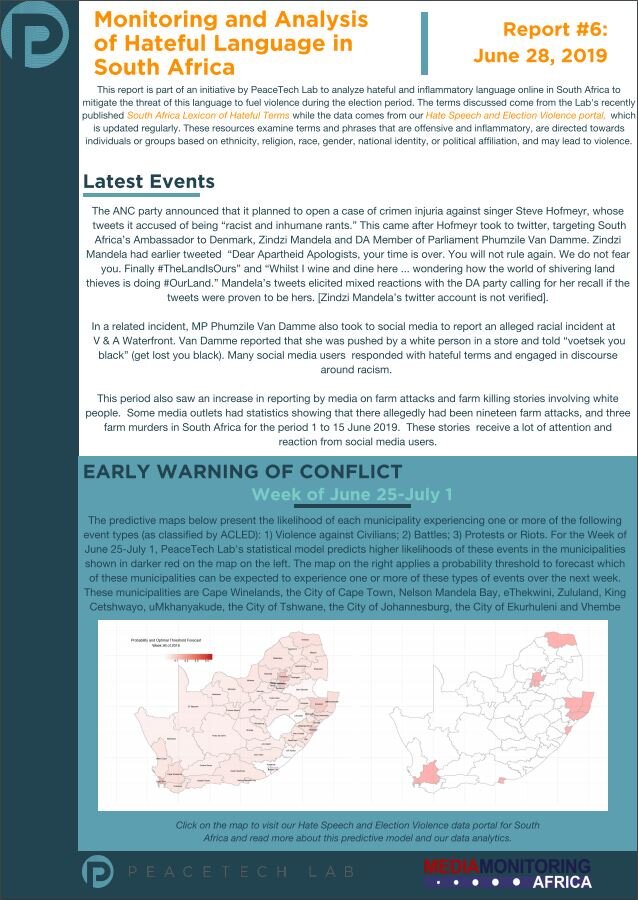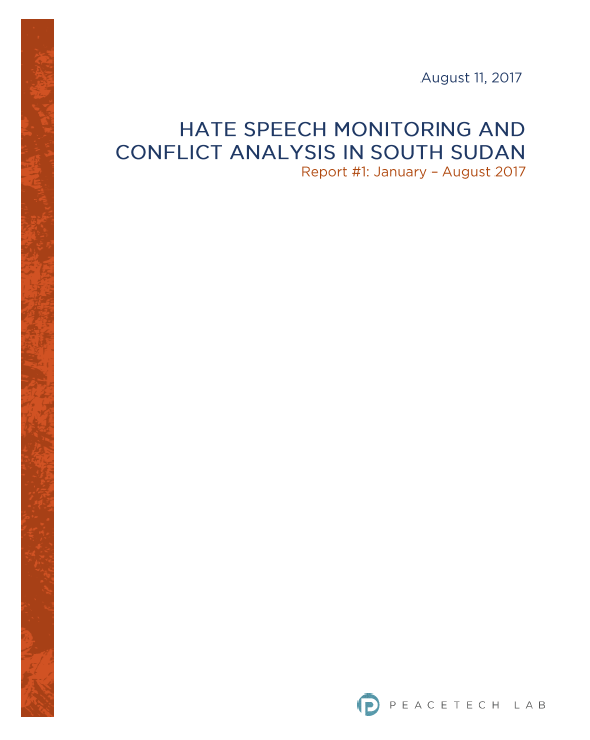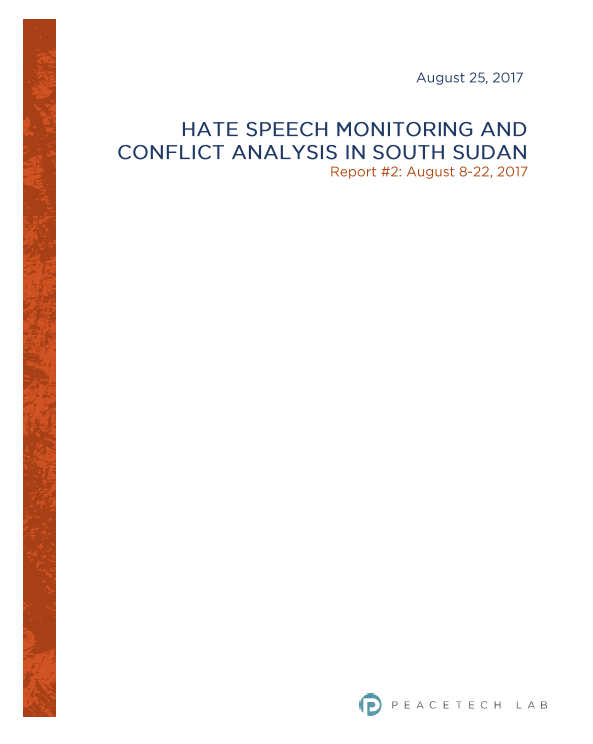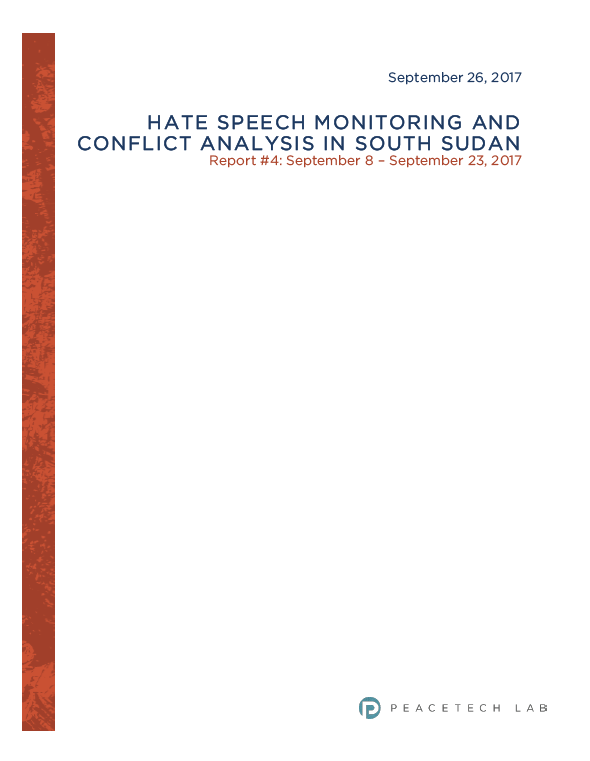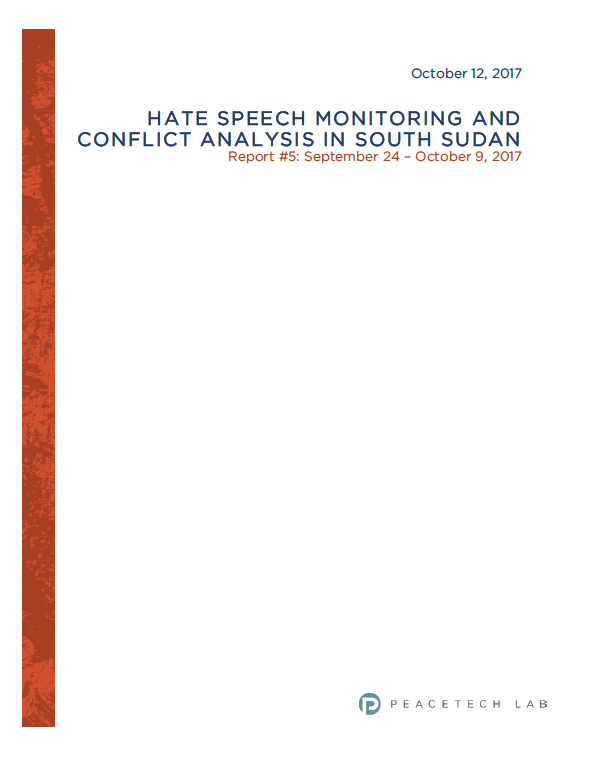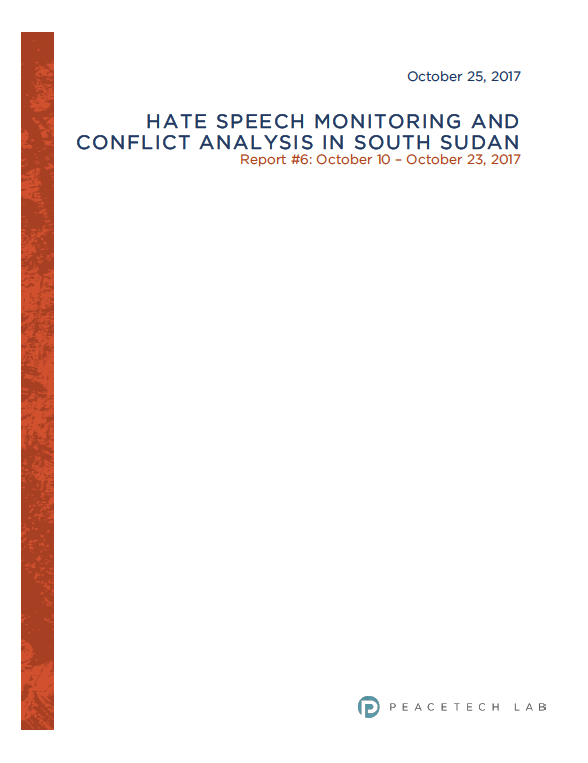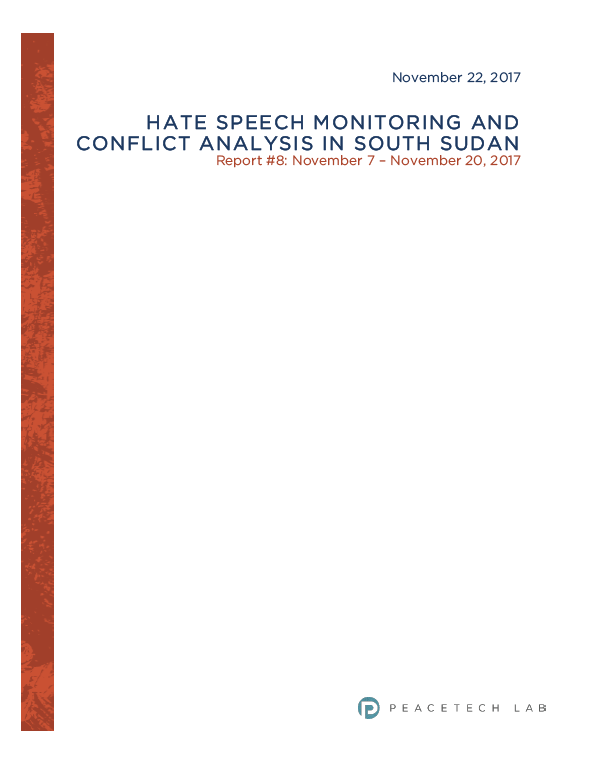
Combining Cutting-Edge Social Media Analysis with Local Expertise.
PeaceTech Lab is leading the field in hate speech prevention. Since 2015, our team of expert analysts—based around the world—have analyzed online hate speech to mitigate the threat of on-the-ground violence in countries affected by conflict.
We define hate speech as language that can incite others to discriminate or act against individuals or groups based on their ethnic, religious, racial, gender, or national identity. PeaceTech Lab also acknowledges the role of “dangerous speech,” a heightened form of hate speech that can catalyze mass violence.

Countering Hate Action Network (CHAN)
In 2021, the Lab launched the first iteration of our CHAN program, which brought together partner organizations from 11 different countries to bolster their hate speech work with technology tools. Many of these organizations had previously worked to develop the local hate speech lexicons, which the Lab developed beginning in 2016. With the support of CHAN program facilitators and technology trainers, participating organizations were introduced to best practices for countering hate speech and were trained on low-cost, easy-to-use technologies to address hate speech online and in their communities.
In September 2022, we launched the CHAN 2.0, featuring a new train-the-trainers (ToT) component. In addition to the trainings conducted in the 2021 CHAN program, 19 peacebuilding organizations from 12 countries—including Cameroon, the DRC, Liberia, Nigeria, South Africa, Sudan, and Yemen—were tasked with developing their own country-specific training programs for implementation in their respective countries. By adding a ToT element, the program’s impact not only spread wider, but was able to permeate local communities more effectively. We finished the CHAN 2.0 program in February 2023.
Over the course of both iterations of CHAN, the program has received press coverage in international outlets including Crux and allAfrica.
As part of the CHAN 2.0 program, we published Countering Hate Speech Strategies and Best Practices: A Training Manual to reflect upon and capture the lessons learned from the CHAN program. In this workbook, we review the four modules and numerous case studies that were used in the CHAN program to build participants’ ability to identify hate speech, use low-cost technologies to counter it, and create long-lasting community resiliency. We are excited to make this workbook publicly available, with the hope that program coordinators and practitioners who did not participate in the CHAN program may be similarly equipped to address the complexities associated with countering hate speech.
Our Hate Speech Lexicons
PeaceTech Lab’s hate speech Lexicons identify and explain inflammatory language on social media while offering alternative words and phrases that can be used to combat the spread of hate speech. Our Lexicons serve as a pivotal resource for local activists and organizations working to stop and prevent hate speech worldwide.
Click on an image below to read a Lexicon.
Hateful Language in South Africa
In 2019, PeaceTech Lab, in partnership with Media Monitoring Africa, monitored and analyzed language trends throughout South Africa’s election season to offer insights on the potential relationship between hateful language on social media and instances of violence seen in municipalities throughout the country. This data aims to support South Africans, NGOs, local governments and social media companies as they build responses to election-related hateful language.
Click on an image below to read a report and see our findings.
Hate Speech in South Sudan
Between 2015 and 2017, PeaceTech Lab conducted extensive research to understand the role online hate speech plays in contributing to violence in South Sudan. This research served as a leading example of the serious impact hate speech can have in conflict-affected countries.
Click on an image below to read a report.

